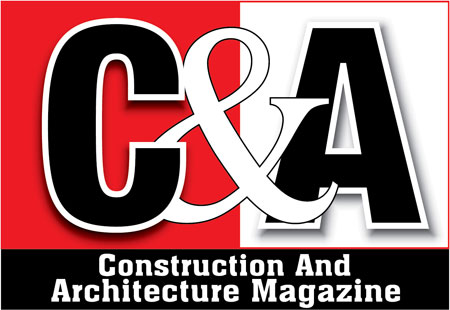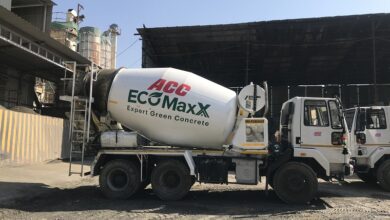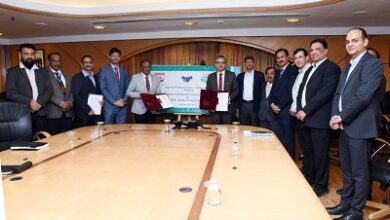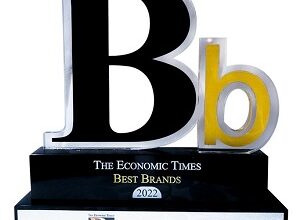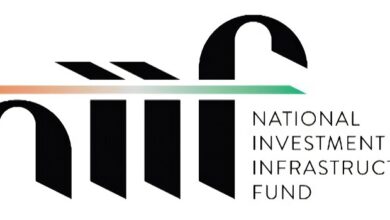Backward integration in SOBHA – Building A Pattern of Excellence
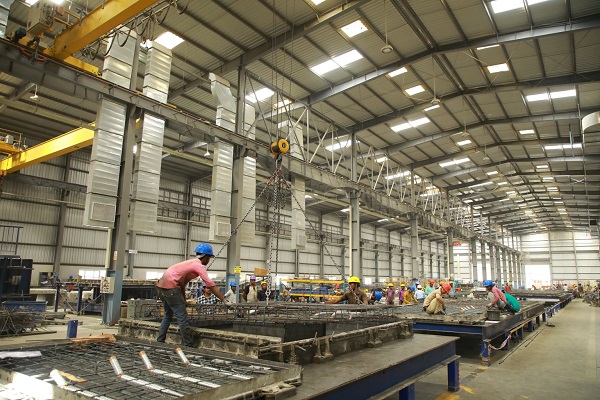
SOBHA Limited, India’s leading real estate company has earned the trust and admiration of customers and the industry over the years since its inception in 1995. What lies behind the brand’s strong reputation for international quality and on-time delivery is the ‘Backward integration’ model which it started to invest 2000 and has been strengthened and improved several times over, helping the company deliver on its commitments and promise to customers that have stood the test of time. This model exemplifies how having in-house competencies and expertise from ‘Design to delivery’ of real estate projects can create truly one of a kind experience for home buyers and commercial customers alike. That of finesse, class and a gold standard in construction quality.
Complete ownership along the value-chain for guaranteed international quality
The brainchild of SOBHA Founder and Chairman Emeritus Mr. PNC Menon, the BI model has ensured that SOBHA has all the in-house competencies to guarantee international quality and timely delivery from start to finish. Already known to deliver international quality in the Middle East, Mr. Menon wished for the same in India. He knew the only way to achieve this was to have complete ownership and control of the value chain from design to delivery. This led to the setting up of factories that allowed SOBHA to have better control over quality and deliveries that can be obtained through robust processes, systems, and skilled people.
From sourcing raw materials through design and manufacturing, finishings, and quality checks, Mr. Menon set up a well-oiled process that ensured SOBHA consistently delivers the quality it was committed to. He made huge investments in setting up factories for concrete products and interiors such as wood products, glazing and metal works, which not only makes us self-reliant, but also less dependent on external factors such as suppliers, talent, and a workforce that tends to be incredible both from a quality and availability perspective.
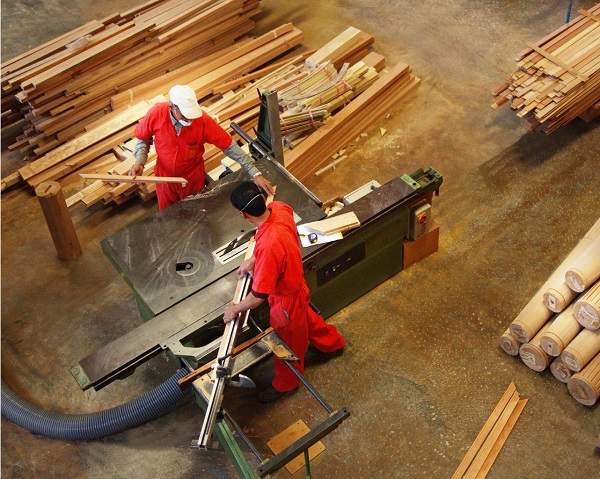
Training at every step of the way
SOBHA’s strength is in its teams, having the right people for the right job, which is why after having invested in setting up the BI model, Mr. Menon brought technicians from the Middle East to train people in India. Having systems and processes is just the beginning, having the right competencies, training and attitudes is what sustains any business model. To this day, SOBHA continues to invest in its people and is reflected in the company’s core philosophy that a product is as good as its people. SOBHA Academy has been specifically set up to train and skill technicians, tradesmen and engineers working at site. Several programs and certifications ensure consistent delivery of quality.
Today, close to 2500 trained people and over 7000 skilled technicians, craftsmen, tradesmen help design, engineer, and execute the entire value chain to deliver world-class assets and including architecture, electrical, plumbing, civil, finishes, firefighting, landscaping, glazing, metal works and interiors.
To sustain its success, SOBHA has been able to consistently set several benchmarks in design, building materials, construction technology and processes, finishing, and sustainable practices, all the while addressing changing customer needs.

With the environment, for the environment
Since inception, SOBHA has focused on the environment in its projects and operations. The concept of ‘Recycle and reuse’ is built into the heart of its backward integration model. All waste generated, be it water or materials, is recycled and reused in its projects and factories. This approach limits environmental impact and carbon footprint. For the range of doors that SOBHA manufactures, wood is PEFC-certified. Simply put, wood is sourced from suppliers who only use trees that have completed their useful life and commit to afforestation.
SOBHA has also made significant investments in setting up and maintaining its own plant and machinery, giving it the flexibility to deploy resources where and when needed most. Challenges are often faced when special equipment or machinery is required, especially for the high quality of construction and finishes SOBHA is committed to. An efficient project and planning system developed in-house offers huge benefits, particularly when construction activity is at its peak with multiple projects being executed in different parts of the country.
Precast technology – built to fit
An innovation that was born out of the backward integration model is the precast technology, where delivery times are reduced by nearly 30%. Though this technology is not as simple as it seems, SOBHA Chairman Ravi PNC Menon played a decisive role in its successful integration. In fact, SOBHA Dream Acres in Bengaluru has been built with precast technology, which has automated the construction process, cut costs, and improved productivity and efficiency – all the while maintaining the quality SOBHA is known for.
This end-to-end ‘Design to delivery’ model makes SOBHA uniquely distinct. The backward integration model has allowed SOBHA to get complete control over its supply chain, ensuring a strong base of vendors who ensure a quality supply of raw materials and other products required. Since this model almost insulates you from dependence on the external ecosystem, SOBHA can plan better ahead and manage inventories.
SOBHA continues to bring international quality, greater efficiency, and a competitive advantage by taking full control of its ’Design to delivery’ model, which is proof of its firm commitment and dedication to quality and innovation in the real estate sector. This concept is an illustration of how exceptional businesses work towards excellence and sustainability while raising standards of living for the Indian customer.
